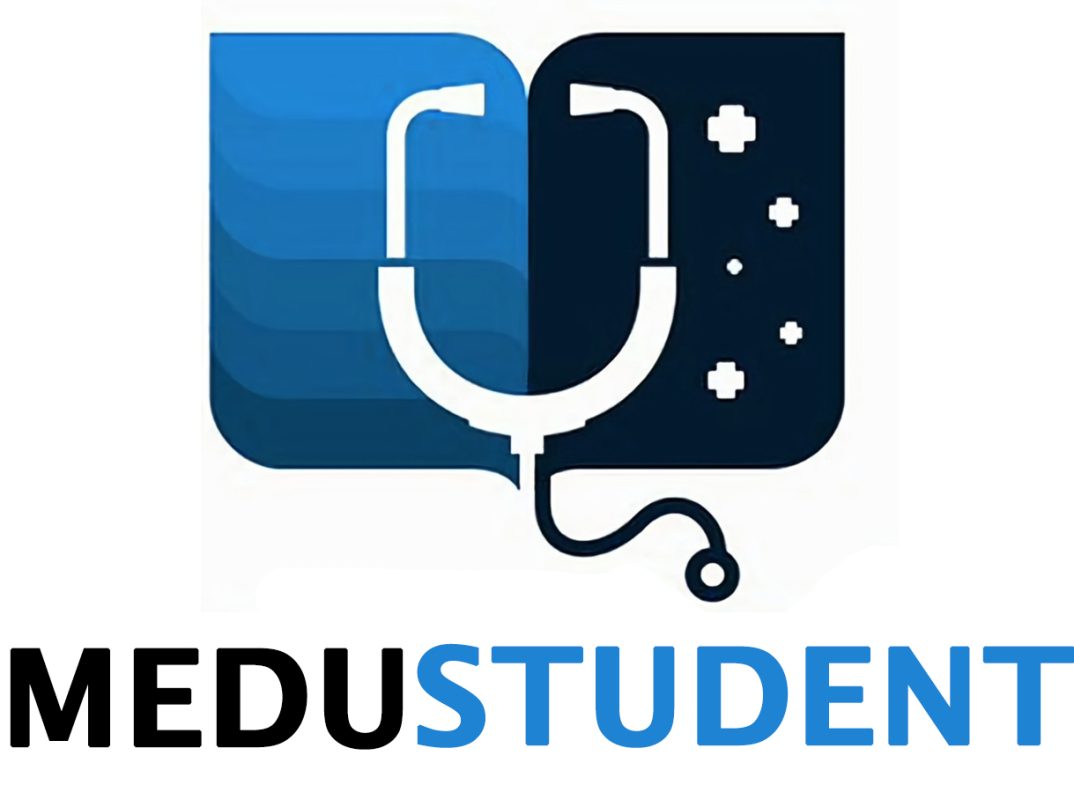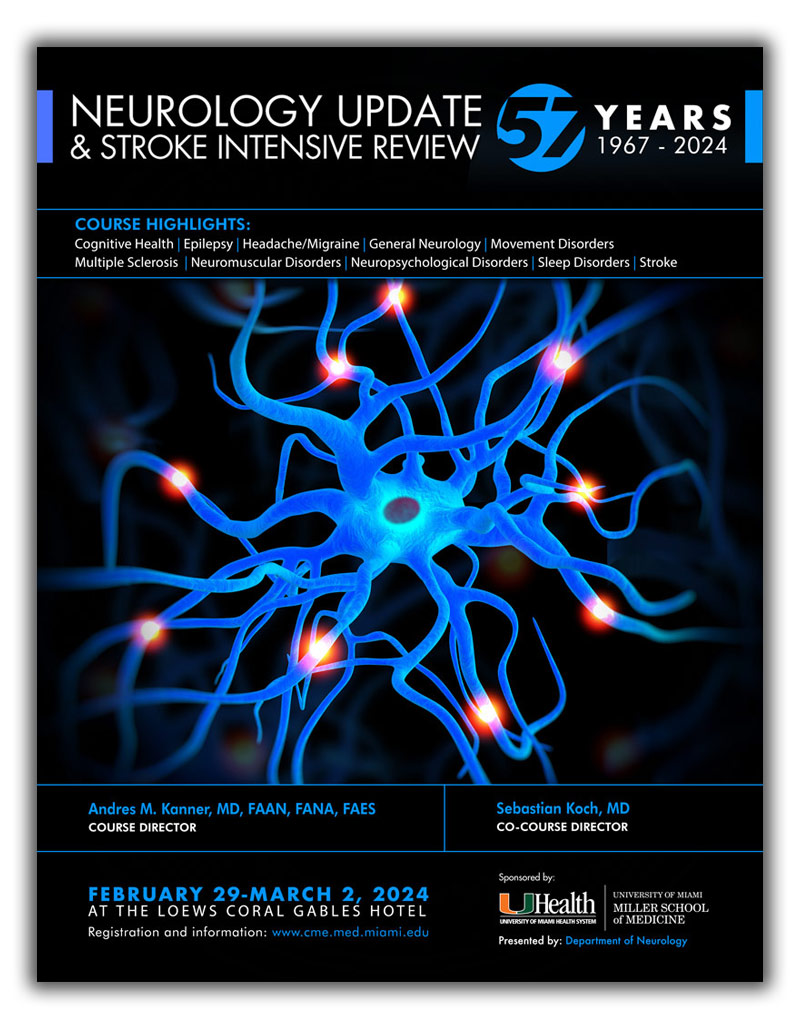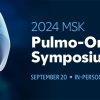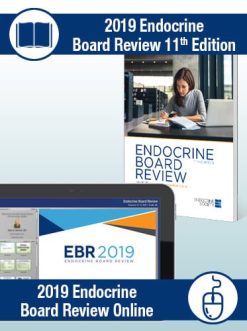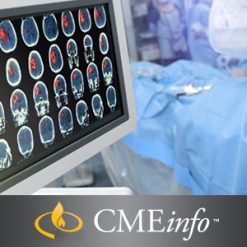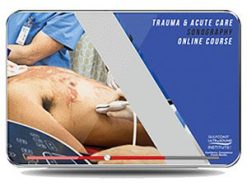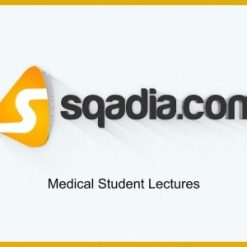University of Miami Neurology Update and Stroke Intensive Review 2024
$75,00
This Product is shared via google drive download link, So please share your correct Gmail id while placing the order .Please note that there are no CME points or certificate associated with this course Samples for Courses Can be found here : Free Samples Here!
Include: 48 videos + 38 pdfs, size: 14.6 GB
Categories: INTERNAL MEDICINE, NEUROLOGY, ONCOLOGY-HEMATOLOGY, Psychiatry, SURGERY
Tags: Hematology / Oncology, INTERNAL MEDICINE, Neurology, Psychiatry, SURGERY
University of Miami Neurology Update and Stroke Intensive Review 2024
Include: 48 videos + 38 pdfs, size: 14.6 GB
Target Audience: neurologists, stroke specialists, neurosurgeons, psychiatrists, neuro-oncologists, hospitalists, intensivists, fellows, residents
Information:
- The 57th Annual Neurology Update and Stroke Intensive Review 2024 provides clinicians with a comprehensive review of the most recent developments in the diagnosis and management of neurologic disorders, including stroke, cognitive neurology/brain health, epilepsy, multiple sclerosis (MS), movement disorders, neuromuscular disorders, headache/migraine, neuropsychology, sleep disorders and general neurology.
- Challenging diagnostic and therapeutic questions will be raised in each session around representative clinical vignettes, targeted reviews of the topic by the faculty and panel discussions. Exchange of information between faculty and attendees will take place during questions and answers sessions after each presentation as well as round table and panel discussions.
- In addition, a dedicated stroke seminar will take place Saturday, designed as a stand-alone 8-hour CME activity. For those centers planning to seek stroke center status or already designated as a stroke center, this course will provide stroke teams with the most up-to-date evidence in the field of stroke diagnosis, treatment and prevention.
University of Miami Neurology Update and Stroke Intensive Review 2024
LEARNING OBJECTIVES
At the conclusion of this activity, learners will be able to:
- Cognitive Disorders: Describe the many different presentations and pathologies associated with dementia and how they can potentially detect them
- Multiple Sclerosis: Recognize the benefit of obtaining NFL levels to diagnose and manage Multiple Sclerosis
- Sleep Disorders: Evaluate recent literature and ongoing research regarding the link between sleep disorders and neurological disease and treatment options including surgical treatment for sleep apnea
- Epilepsy: Distinguish autoimmune epilepsy from epileptic seizures that result from an autoimmune encephalitis and plan the proper treatment
- Epilepsy: Recognize the autoimmune cause of status epilepticus
- Headache/Migraine: Identify patients who could benefit from migraine preventive therapies to formulate, initiate, and reinforce a patient-centered migraine prevention plan, with focus on the update for recent pharmacologic and non-pharmacologic strategies
- Headache/Migraine: Explore the diagnosis and treatment paradigms for various headache disorders, including less common and refractory migraine types
- Movement Disorders: Delineate the complexities and challenges presented by advanced Parkinson’s Disease therapies, emphasizing their potential side effects and the scenarios in which they are most likely to arise
- Movement Disorders: Impart strategies and guidelines for identifying and managing side effects early, optimizing patient outcomes and ensuring safety
- Movement Disorders: Outline the primary challenges of accurate identification and categorization of ataxia amidst its wide range of presentations
- Multiple Sclerosis: Identify usefulness and availability of NeuroQuant services and the community and applications in clinical practice
- Multiple Sclerosis: Analyze clinical trial data on efficacy of Bruton tyrosine kinase (BTK) inhibitors in the management of MS
- Neuromuscular Disorders: Summarize the recent identification of autoantibodies associated with inflammatory neuropathies and review their correlation with clinical presentation and treatment response
- Neuromuscular Disorders: Review the recent completed clinical trials for ALS
- Neuromuscular Disorders: Outline an approach to the diagnosis of myositis based on autoantibody profiling
- Stroke: Treat appropriate acute ischemic stroke patients with modern strategies that include the extended 24-hour treatment window with thrombolytics, endovascular approaches and antithrombotic
- Stroke: Establish appropriate management of intracerebral hemorrhage according to current guidelines for the management of hypertensive and lobar hemorrhages as well as the role of reversal strategies in coagulopathic hemorrhages.
- Stroke: Institute measures to prevent a recurrent stroke based on stroke mechanism and in special populations according to the most recent guidelines and evidence
- Sleep Disorders: Evaluate recent literature and ongoing research regarding the link between sleep disorders and neurological disease and treatment options including surgical treatment for sleep apnea
- Neuropsychological Dislorders: Examine the factors that contribute to neurocognitive concerns following mild traumatic brain injury and the potential appropriate interventions
TARGET AUDIENCE
- The course is aimed primarily at neurologists, stroke specialists, neurosurgeons, psychiatrists, neuro-oncologists, hospitalists, intensivists, fellows, residents, nurses and allied healthcare professionals that participate in the care of neurological patients or work in stroke centers. Internists, general practitioners and cardiologists may also find the topics timely and useful.
- Specialties – Alzheimer’s/Cognitive Disorders, Epilepsy, General Neurology, Headache/Migraine, Movement Disorders, Multiple Sclerosis, Neurology, Neuromuscular Diseases, Neuro-Oncology, Neuropsychology, Neurosurgery, Sleep Medicine, Stroke
Professions – Allied Health Professional, Exhibitor, Fellow, Medical Student, Non-Physician, Nurse, Nurse Practitioner, Other, Pharmacist, Physician, Physician Assistant, Psychologist, Research, Resident, Scientist
Topics:
- A Practical Approach to Diagnosis- Movement Case Studies.mp4
- A Practical Approach to Diagnosis- Movement Case Studies.pdf
- A Pragmatic Approach to Ataxia.mp4
- A Pragmatic Approach to Ataxia.pdf
- Advances in Neurostimulation for Sleep Apnea.mp4
- Advances in Neurostimulation for Sleep Apnea.pdf
- Alzheimer’s Disease Mimics and Variants.mp4
- Alzheimer’s Disease Mimics and Variants.pdf
- An Interesting Case Presentation- Creutzfeldt-Jakob Disease (CJD).mp4
- An Update on Non-Parkinsonian Movement Disorders.mp4
- An Update on Non-Parkinsonian Movement Disorders.pdf
- Anticoagulating the Challenging Atrial Fibrillation Patient.mp4
- Broadening Horizons- Idiopathic Intracranial Hypertension’s Evolving Landscape.mp4
- Broadening Horizons- Idiopathic Intracranial Hypertension’s Evolving Landscape.pdf
- Cervical Artery Dissection.mp4
- Cervical Artery Dissection.pdf
- Clinical Case Discussion Multiple Sclerosis.mp4
- Clinical Case Discussion Multiple Sclerosis.pdf
- Clinical Pearls for Complex Headache Disorders.mp4
- Clinical Pearls for Complex Headache Disorders.pdf
- Code ICH- Time-Based Approach to Acute Care.mp4
- Code ICH- Time-Based Approach to Acute Care.pdf
- Cortical Subarachnoid Hemorrhage.mp4
- Cortical Subarachnoid Hemorrhage.pdf
- Current Management of Spinal Muscular Atrophy.mp4
- Current Management of Spinal Muscular Atrophy.pdf
- Diagnostic Dilemmas and Challenging Differential.mp4
- Diagnostic Dilemmas and Challenging Differential.pdf
- Epileptic Seizures Associated with Autoimmune Encephalitis vs. Autoimmune Epilepsy- How to Reach the Correct Diagnosis 2.mp4
- Epileptic Seizures Associated with Autoimmune Encephalitis vs. Autoimmune Epilepsy- How to Reach the Correct Diagnosis.mp4
- Evaluation and Management of Low Back Pain.mp4
- Evaluation and Management of Low Back Pain.pdf
- Evaluation and Management of TTR-Familial Amyloid Polyneuropathy.mp4
- Evaluation and Management of TTR-Familial Amyloid Polyneuropathy.pdf
- Factors Underlying Acute and Persisting Neurocognitive Concerns Following Mild Traumatic Brain Injury.mp4
- Factors Underlying Acute and Persisting Neurocognitive Concerns Following Mild Traumatic Brain Injury.pdf
- Health Disparities in Sleep And Cognition.mp4
- Health Disparities in Sleep And Cognition.pdf
- Keynote Presentation- Intracranial Stenosis- Between the Scylla and Charybdis.mp4
- Keynote Presentation- Intracranial Stenosis- Between the Scylla and Charybdis.pdf
- Large Core Infarction.mp4
- Managing Cerebral Vein and Dural Sinus Thrombosis.mp4
- Minimally Invasive Intracerebral Hemorrhage Evacuationi.mp4
- Neurobehavioral Markers of Brain Health and Dementia.mp4
- Neurobehavioral Markers of Brain Health and Dementia.pdf
- Neurology in the Era of Chat-GPT.mp4
- Neurology in the Era of Chat-GPT.pdf
- Neuromuscular Cases and Q&A.mp4
- Novel Imaging Modalities for Evaluation of MS Progression.mp4
- Novel Therapeutic Approaches in MS.mp4
- Novel Therapeutic Approaches in MS.pdf
- Parkinson’s Disease- Potential Side Effects of Standard of Care and Advance Therapies.mp4
- Parkinson’s Disease- Potential Side Effects of Standard of Care and Advance Therapies.pdf
- Patient Selection for Intravenous Thrombolysis.mp4
- Patient Selection for Intravenous Thrombolysis.pdf
- Patient Selection for Mechanical Thrombectomy.mp4
- Redefining Successful Migraine Prevention.mp4
- Redefining Successful Migraine Prevention.pdf
- Refining Approaches to Acute Migraine Management.mp4
- Refining Approaches to Acute Migraine Management.pdf
- Relationship Between Structural and Functional Relationship Between Structural and Functional Changes In Temporal Lobe Epilepsy.mp4
- Relationship Between Structural and Functional Relationship Between Structural and Functional Changes In Temporal Lobe Epilepsy.pdf
- Sleep in Cognitive Aging and Alzheimer’s Disease.mp4
- Sleep in Cognitive Aging and Alzheimer’s Disease.pdf
- Small Vessel Disease.mp4
- Small Vessel Disease.pdf
- Specific Psychotherapeutic Considerations for Patients with Neurological Conditions.mp4
- Specific Psychotherapeutic Considerations for Patients with Neurological Conditions.pdf
- Stroke Treatment Roundtable.pdf
- The 2023 Updates on Subarachnoid Hemorrhage.mp4
- The 2023 Updates on Subarachnoid Hemorrhage.pdf
- The AAN 2023 Updated Guidelines for Determining Brain Death.mp4
- The AAN 2023 Updated Guidelines for Determining Brain Death.pdf
- The Future is Now- A Critical Review of New Therapies and Diagnostics.mp4
- The Future is Now- A Critical Review of New Therapies and Diagnostics.pdf
- The UM Brain Endowment Bank- One Deposit, Many Returns.mp4
- The UM Brain Endowment Bank- One Deposit, Many Returns.pdf
- Three Typical Manifestations of Autoimmune Epilepsy.mp4
- Three Typical Manifestations of Autoimmune Epilepsy.pdf
- Treatment Strategies- Immunotherapy. Antiseizure Medications. Epilepsy Surgery. Leticia Tornes, MD, FAAN.mp4
- Treatment Strategies- Immunotherapy. Antiseizure Medications. Epilepsy Surgery. Naymee J. Velez-Ruiz, MD.mp4
- Treatment Strategies- Immunotherapy. Antiseizure Medications. Epilepsy Surgery..pdf
- Update on Neurofilament Light Chain (NFL) as a Biomarker of Multiple Sclerosis (MS) Activity.mp4
- Update on Neurofilament Light Chain (NFL) as a Biomarker of Multiple Sclerosis (MS) Activity.pdf
- Update on REM-Related Parasomnias.mp4
- Update on REM-Related Parasomnias.pdf
Related products
$50,00
$50,00
$40,00
$25,00
$18,00
